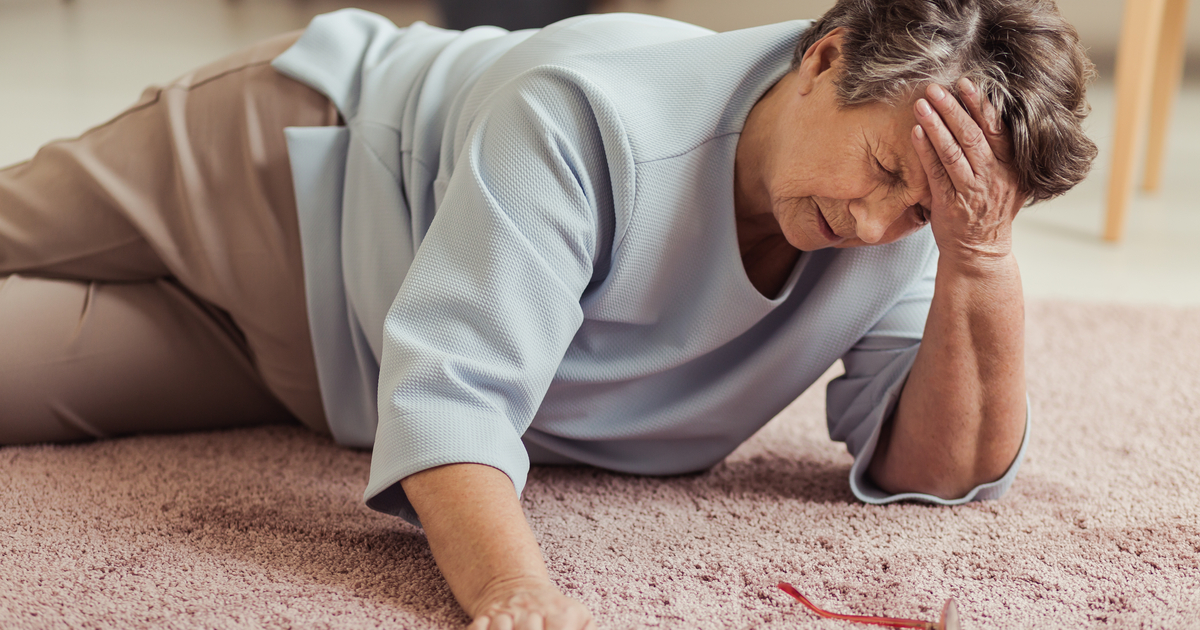If you were to survey 100 elderly Americans about their biggest fears, falling would probably rank high on most lists. That’s because every year millions of seniors experience accidental falls that require medical attention, hospitalizations, and nursing home stints. And, as the aging process continues, a fear of falling can eventually limit an at-home senior’s activities to the point it threatens their wellbeing and independence. To help ensure that doesn’t happen to your loved one, try these reliable steps to help them overcome their fears.
Why are Seniors Afraid of Falling?
Once a person reaches age 55, their body undergoes changes that throw off their normal balance and coordination. Certain medications and cognitive impairment, like dementia, can also alter balance and coordination, and further increase a senior’s likelihood to fall. According to the Centers for Disease Control and Prevention (CDC), in an average year 1-in-3 seniors experience a fall, leading to these additional fall-related statistics:
- 2.8 million injuries
- 800,000 hospitalizations
- 27,000 fatalities
“1-in-3 seniors experience a fall in an average year” – Centers for Disease Control and Prevention
Unfortunately, many seniors try to hide a fear of falling from others, including their adult children. If you suspect that it’s an issue for your loved one, there are several reliable ways to restore their peace-of-mind.
Helping a Senior Conquer Their Fears
First, have an open and honest discussion with them about falling, and how that fear is interfering with their normal daily activities. Then, offer your support to help alleviate those concerns. Once they’ve accepted your offer, here are some proven ways to make them feel safer and more relaxed inside and outside their home:
Eliminate Fall Hazards
Go around their home and remove trip hazards like slippery throw rugs or pieces of furniture. Make sure their stairs and steps are well-lit, and fall-proof their bathroom by adding grab bars, a shower transfer bench, or walk-in shower with anti-skid strips. Also encourage your loved one to stay off stepstools and ladders. A good way to do so is to place items they routinely use within arm’s length.
Test Their Balance
Their doctor or a physical therapist can perform a balance assessment to check for any abnormalities. If they pass the test, it’ll give you both some reassurance. If they don’t, their doctor can order an assistive device like a walker or cane for added walking stability and self-confidence.
Encourage Exercise
There are many low-impact forms of exercise that are safe for seniors, including Yoga, Tai Chi, or chair aerobics. All are great ways to build muscle strength and increase flexibility, which will also improve their coordination and balance. And, participating in a regular exercise program can also lower stress levels and promote a better night’s sleep. As an added social benefit, exercise classes are always a fun way for seniors to meet new friends while staying fit!
Buy a Fall Alert Device
Studies have correlated faster emergency medical personnel response times after a senior falls with a reduced likelihood the victim will need to be hospitalized, or spend time rehabbing in a nursing home. To provide added security for your loved one, purchase them a wearable fall alert device. That way, if they fall when no one is around, they can quickly alert first responders by simply pushing a button.
Many fall alerts now come with GPS tracking capabilities, and look stylishly like watches or jewelry pendants that blend seamlessly within a senior’s wardrobe. Life Alert (www.lifealert.com) is the best-known supplier of wearable fall alert devices, although there are now many other reliable companies and styles to choose from.
Hire a Professional Caregiver
Having an extra pair of eyes and hands in your loved one’s home certainly couldn’t hurt, especially when you have your own job and household to manage. Consider hiring a licensed professional caregiver to stay with your loved one when you’re not there, resulting in additional fall prevention support and peace-of-mind for you both.
In-Home Fall Prevention Assistance for Alabama Seniors
Helping an aging loved one overcome a fear of falling is hard, and there may be times when it simply feels overwhelming. When you need a break or live too far away, call upon the fall prevention experts at Seniors Prefer Homecare. Our well-trained and highly-qualified caregivers will put your mind at-ease by serving as an extended family in your loved one’s home, while keeping them safely and comfortably right where they want to be.
While in the home, our fully-insured aides can also perform services like light housekeeping, personal hygiene, meal preparation, medication reminders, transportation and companionship; all delivered in a flexible package to put your mind at-ease. For more information on fall prevention for seniors, or to discover why Seniors Prefer Homecare is becoming the go-to senior home care source for Tuscaloosa, and Huntsville, AL, families, please visit: www.seniorspreferhomecare.com now!

